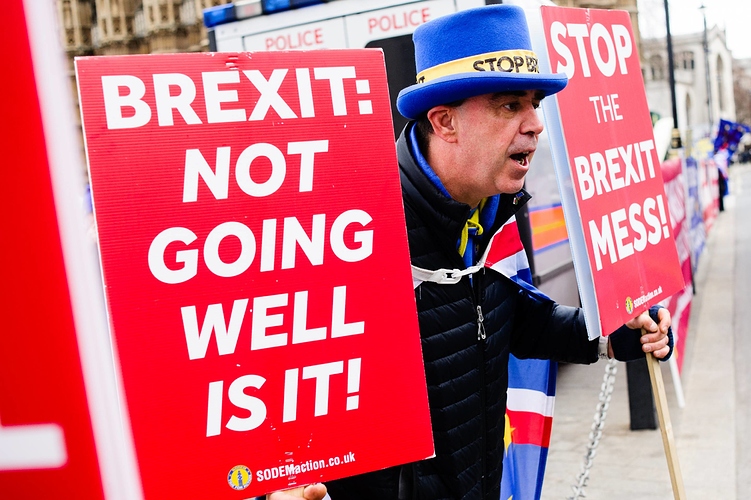At the Verso blog, political philosopher Peter Hallward reflects on the notion of the “people’s will” in the context of the Brexit drama in the UK. As Hallward notes, many of those who oppose holding another vote claim that doing so would violate the people’s will as expressed by the first vote. But Hallward turns to Rousseau to argue that the people’s will is a more nuanced and complex thing than such opponents would have you believe. Here’s an excerpt:
Rousseau’s explanation of this point goes to the heart of our current debate. Popular ‘sovereignty, which is only the exercise of the general will, is, like it, free’, he said, and ‘every act of sovereignty, like every instant of its existence, is absolute, independent of the one that precedes it; the sovereign never acts because it willed [in the past,] but because it wills ’, in the present. And though we can trust such a general will to pursue what its members see as their common interest, Rousseau added, there is a big difference between situations that actively empower a well-informed ‘community of equals’ to see such things as clearly and freely as possible, and situations in which all forms of ‘public deliberation’ are systematically distorted by the influence of the rich and powerful, and by the means of communication they control.
It still makes perfectly good sense, at least outside conservative circles, to equate popular sovereignty with the will of the people. Anyone who does so, though, should remember that a will can never just be decided once and for all, and that everything depends on its actual and ongoing means for arriving at a decision, and for pursuing its consequences. A will is never done and dusted. To will something is precisely to keep on willing it, here and now, and so also on into the future that might thereby come to pass. Whether it be individual or collective, a will can certainly remain clear and commanding, but only if it indeed remains so, in the present.
Yes, we know that a slim majority of British voters wanted to leave the EU in 2016, even if they wanted this for wildly divergent reasons. Majority rule is as good a way as any of deciding such questions. But do we know whether most of us still want to leave today, now that there are several concrete options to consider, and now that we know a good deal more about the likely pros and cons that they each entail? No, we don’t. If we care about the answer to this question we should ask it directly, and resist the urge to rush the response.
